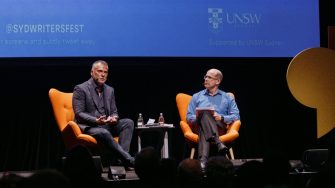“Words are not enough”: Stan Grant discusses his bewildering and bruising week
The former ABC journalist sat down with UNSW Sydney constitutional law expert, Professor George Williams at the Sydney Writers’ Festival to talk about his new book and the media’s failure.

